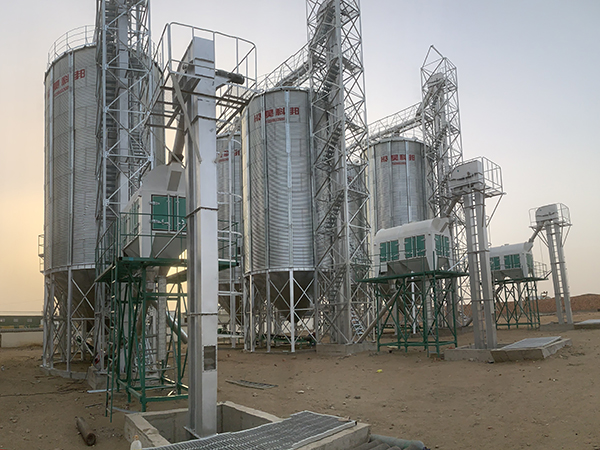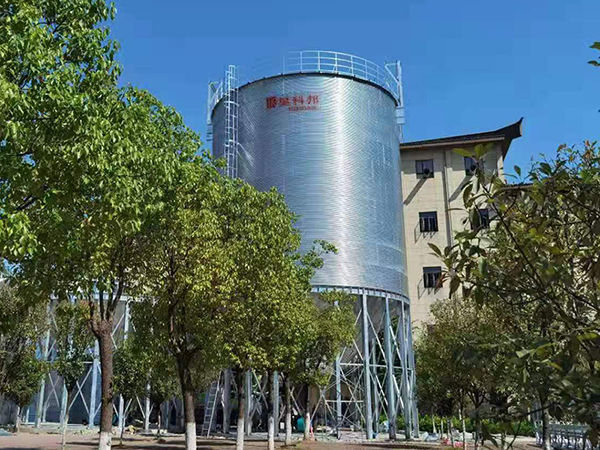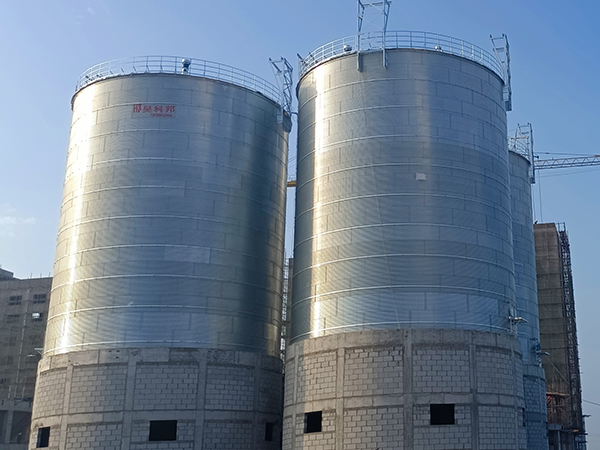Peanut seed silo sale in Angola,Africa
Peanut seed silos are designed for efficient, economical, and safe storage, with product features including structure, capacity, materials, and ventilation systems. Technical features like automated control and environmental monitoring enhance storage efficiency. Purchasing considerations involve needs analysis, budget planning, and after-sales service to ensure wise investment decisions and user satisfaction.
- Main Advantages of Wheat Silo in Uganda
- Main Functions of Wheat Silo in Uganda
- Corn mill factory in Mali
- Maintenance Methods for Wheat Silo in Uganda
- Maintenance Methods for a Rice Silo in Uganda
- Wheat mill supplier in Malawi
- Installation Process of a Rice Silo in Uganda
- Structural Composition of a Rice Silo in Uganda
- Flour mill sale in Rwanda
- Main Advantages of Rice Silo in Uganda
- Primary Functions of Rice Silo in Uganda
- Grinding mill cost in Libya
Peanuts, as a globally cultivated oil crop, have seeds whose storage and management are crucial for ensuring oil production and food processing. With the advancement of agricultural modernization, traditional storage methods can no longer meet the needs of large-scale cultivation. Peanut seed silos, with their efficiency, economy, and safety, have become the ideal choice for modern agricultural storage. Understanding product features, market positioning, and purchasing strategies in peanut seed silo sale is key to ensuring investment returns.
Product Design of Peanut Seed Silos
Product design is a critical aspect of peanut seed silo sale, directly affecting the performance of the silo and the user experience.


Structure and Capacity
The structural design of the silo must be customized based on the characteristics of peanut seeds and storage requirements. Vertical silos are suitable for farms with limited land, while horizontal silos are ideal for large-scale storage. Designers need to accurately calculate the capacity of the silo to ensure it meets storage needs without wasting space.
Materials and Manufacturing
The choice of materials directly relates to the silo’s durability and corrosion resistance. Stainless steel and galvanized steel are common manufacturing materials, which are not only high in strength but also have good weather resistance. Additionally, welding techniques and surface treatments during the manufacturing process significantly affect the service life of the silo.
Ventilation and Moisture Prevention
The respiration of peanut seeds generates heat and moisture, making the design of the ventilation system crucial. Modern silos are typically equipped with an automatic ventilation system that adjusts air volume based on the internal environment. At the same time, moisture-proof design is essential to effectively prevent seeds from becoming damp and moldy.
Technical Features of Peanut Seed Silos
Technical features are often the key selling points in peanut seed silo sale, where advanced technology provides better storage effects and operational convenience.
Automated Control Systems
Automated control systems can monitor the environmental conditions inside the silo in real-time and automatically adjust ventilation, temperature, and humidity according to preset parameters. This intelligent operation greatly reduces the need for manual monitoring and improves storage efficiency.
Environmental Monitoring Technology
Environmental monitoring technology includes temperature sensors, humidity sensors, and gas concentration sensors, which can accurately measure the environmental parameters inside the silo. With this data, users can better understand the storage status and adjust storage conditions in a timely manner.
Safety Features
Safety features are an indispensable part of silo design. In addition to basic fire prevention and pest control functions, modern silos also include anti-theft alarm systems and emergency discharge systems to ensure rapid response in emergencies.
Considerations for Purchasing Peanut Seed Silos
Understanding the factors to consider when purchasing can help users make wiser decisions in the peanut seed silo sale process.
Needs Analysis
Users should conduct a detailed needs analysis before purchasing a silo, including the annual seed production, expected storage period, and future expansion plans. This helps determine the capacity and functional requirements of the silo, avoiding the purchase of a silo that is too large or too small.


Budget Planning
Purchasing a silo is a significant capital expenditure, making budget planning crucial. Users need to consider the purchase cost, installation fees, and subsequent maintenance costs of the silo. Reasonable budget planning can ensure the investment is within an acceptable range while obtaining the best storage solution.
After-Sales Service
High-quality after-sales service can provide additional protection for users. When purchasing a silo, users should understand the supplier’s after-sales service policies, including installation guidance, warranty periods, and technical support. Good after-sales service can reduce problems in later use and improve user satisfaction.








